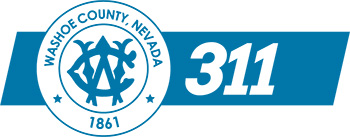MOST Team
If an individual is at imminent risk of harming themselves or others call 911
History and Background of MOST
The Mobile Outreach Safety Team (MOST) was created in October of 2003 in response to a concept set forth by the Reno Police Department (RPD) when it became clear there was a need in our community to provide an intensive police response to mental illness beyond the Crisis Intervention Team (CIT) training program.
MOST became operational in 2009 when the Nevada State Legislature funded a pilot program to provide the mental health resources for the initial Team through the state mental health budget. Since its inception, MOST has grown to incorporate the three major law enforcement agencies in Washoe County: the Reno Police Department (RPD), the Sparks Police Department (SPD) and the Washoe County Sheriff’s Office (WCSO).
MOST can be called to any part of the Reno/Sparks area to assess a person’s mental health status and needs, directing and/or transporting them to the most appropriate resource to assist them and keep them out of the criminal justice system. The MOST intervention capability provides a more proactive response to the community to attempt to intervene earlier in the mental illness cycle and utilize less costly services while also decreasing the law enforcement calls for service. MOST is also designed to create a safer environment for the mentally ill and for officers responding to potential crises.
The goal of MOST is early and voluntary intervention to avoid costly emergency room visits and hospitalization if possible. It also has the objective of reducing law enforcement calls for service and/or handling calls for service requiring a level of expertise outside the scope of law enforcement. MOST workers do not carry a caseload or perform ongoing therapy but focus primarily on crisis intervention and linkages to services.
The 2017 Legislature approved a major expansion of MOST, allocating resources to make the program available on day and swing shifts, 7 days a week, beginning in October, 2017.
MOST Duties
The primary duties of clinical members of the MOST Team are as follows:
- MOST clinicians will ride along with law enforcement from the three Washoe County jurisdictions (Reno Police Department, Sparks Police Department, Washoe County Sheriff’s Office) to provide crisis intervention services in response to a call for service
- Provide skilled intervention capabilities for situations requiring a “diagnostic” Legal 2000 where officers and/or paramedics do not have the necessary training and background to complete a legal hold. Situations may include suicidal plan and intent, homicidal plan and intent, severe self-neglect, gravely disabled, self-mutilation etc.
- Complete “Persons in Crisis” welfare checks and/or contact with problematic frequent users of services to promote medication compliance, access to resources, and wellness promotion to reduce calls for service and frequent hospitalizations.
- Provide skilled assessment to encourage voluntary use of community resources to prevent future crises. Offer assistance in connecting with resources as determined by client and clinician.
- Connect individuals in crisis to local resources to provide a long term support network for their needs.
- Provide educational resources for law enforcement to expand the body of knowledge about mental illness and techniques available to address the phenomenon.
- Build working relationships with local agencies to foster community support for the mentally ill.
- Provide follow up information to referring officers or community referrals as deemed appropriate or needed.
- Utilize the services of the MOST Case Manager to ensure linkages to ongoing mental health care for those who need assistance.
Referral Sources
Referrals to MOST may come from any source in the community but most typically will be generated from the sources noted below.
- Law Enforcement: Officers and non-sworn staff may make referrals from day, swing, and graveyard shifts as they identify persons with behavioral health issues including extreme substance use concerns that impact a person’s mental health.
- Community Providers: MOST referrals are accepted from public and private community providers when they believe a follow-up contact by MOST will be beneficial to persons with behavioral health concerns.
- Family: Family members may contact MOST when they have a concern about behaviors or actions and believe contact with the MOST team will be beneficial.
- Self-Referral: Individuals may self-refer if they are in crisis, feel as they are at-risk of crisis, or are unable to access community resources due to physical and/or mental difficulties.
Referral Process
The preferred mechanism for referring a case to MOST is through the shared email mailbox:
Critical or urgent referrals will receive first response. Chronic callers may be delayed to a later date, if necessary, due to time constraints. The MOST clinician will not respond to calls on scene without a MOST law enforcement partner present.
